Most stable radical among the following is :
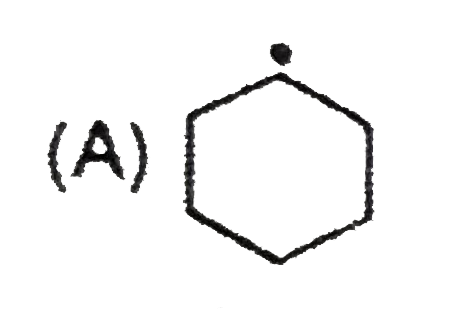
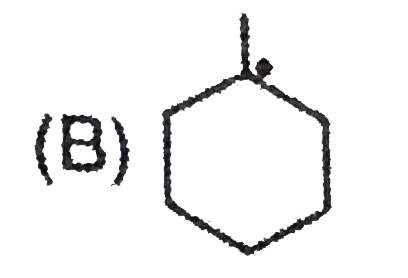
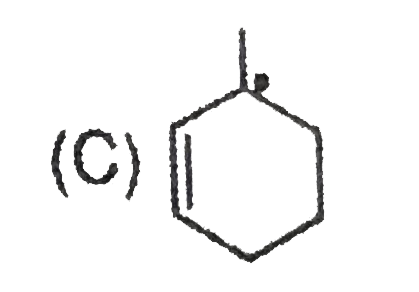
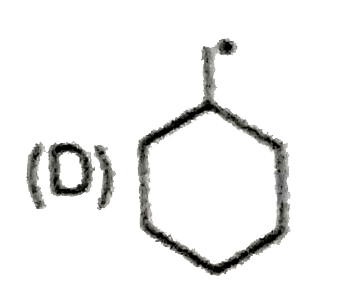
The correct Answer is:C
To determine the most stable radical among the given options, we need to analyze the stability of each radical based on the presence of conjugation and resonance. Here’s a step-by-step solution:
Step 1: Identify the radicals
First, we need to identify the radicals present in each of the given options. A radical is a species that has an unpaired electron.
Step 2: Analyze the structure of each radical
For each radical, we will look at its structure to see if there are any double bonds or conjugated systems that can stabilize the radical through resonance.
Step 3: Evaluate the stability of each radical
1. Radical A: Check if there is a double bond or conjugated system. If there is none, it will be less stable.
2. Radical B: Similarly, check for double bonds or conjugation. If present, it may provide some stability.
3. Radical C: If this radical has a double bond adjacent to the radical center, it can stabilize the radical through resonance.
4. Radical D: Again, check for any double bonds or conjugation that can stabilize the radical.
Step 4: Determine the most stable radical
- The radical that has a conjugated system (where the unpaired electron can delocalize) will be the most stable.
- In this case, if Radical C has a double bond adjacent to the radical, it will allow for resonance stabilization, making it the most stable radical.
Conclusion
After analyzing all the radicals, we conclude that Radical C is the most stable due to the presence of conjugation.
Final Answer
The most stable radical among the following is Radical C.
---
First, we need to identify the radicals present in each of the given options. A radical is a species that has an unpaired electron.
For each radical, we will look at its structure to see if there are any double bonds or conjugated systems that can stabilize the radical through resonance.
1. Radical A: Check if there is a double bond or conjugated system. If there is none, it will be less stable.
2. Radical B: Similarly, check for double bonds or conjugation. If present, it may provide some stability.
3. Radical C: If this radical has a double bond adjacent to the radical center, it can stabilize the radical through resonance.
4. Radical D: Again, check for any double bonds or conjugation that can stabilize the radical.
- The radical that has a conjugated system (where the unpaired electron can delocalize) will be the most stable.
- In this case, if Radical C has a double bond adjacent to the radical, it will allow for resonance stabilization, making it the most stable radical.
After analyzing all the radicals, we conclude that Radical C is the most stable due to the presence of conjugation.
The most stable radical among the following is Radical C.
Topper's Solved these Questions
- GENERAL ORGANIC CHEMISTRY IIBOOK - RESONANCE ENGLISHCHAPTER - GENERAL ORGANIC CHEMISTRY IIEXERCISE - Part-III: Match the Column
2 Videos
- GENERAL ORGANIC CHEMISTRY IIBOOK - RESONANCE ENGLISHCHAPTER - GENERAL ORGANIC CHEMISTRY IIEXERCISE - Part-I : Only One Option Correct Type
22 Videos
- GENERAL ORGANIC CHEMISTRY IIBOOK - RESONANCE ENGLISHCHAPTER - GENERAL ORGANIC CHEMISTRY IIEXERCISE - Exercise-1
20 Videos
- GASEOUS STATEBOOK - RESONANCE ENGLISHCHAPTER - GASEOUS STATEEXERCISE - ORGANIC CHEMISTRY(Hydrocarbon)
18 Videos
- GENERAL ORGANIC CHEMISTRY-IBOOK - RESONANCE ENGLISHCHAPTER - GENERAL ORGANIC CHEMISTRY-IEXERCISE - PART-III : PRACTICE TEST-19
1 Videos
Similar Questions
Knowledge Check
The most stable free radical among the following is
A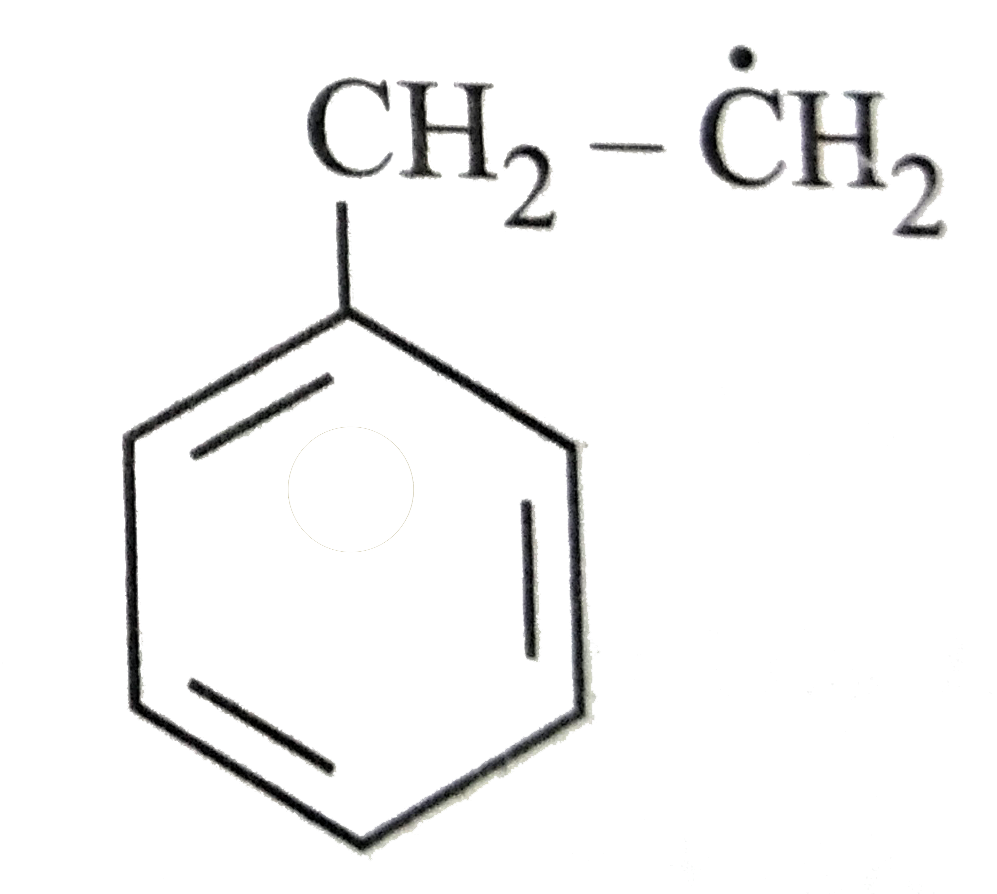 B
B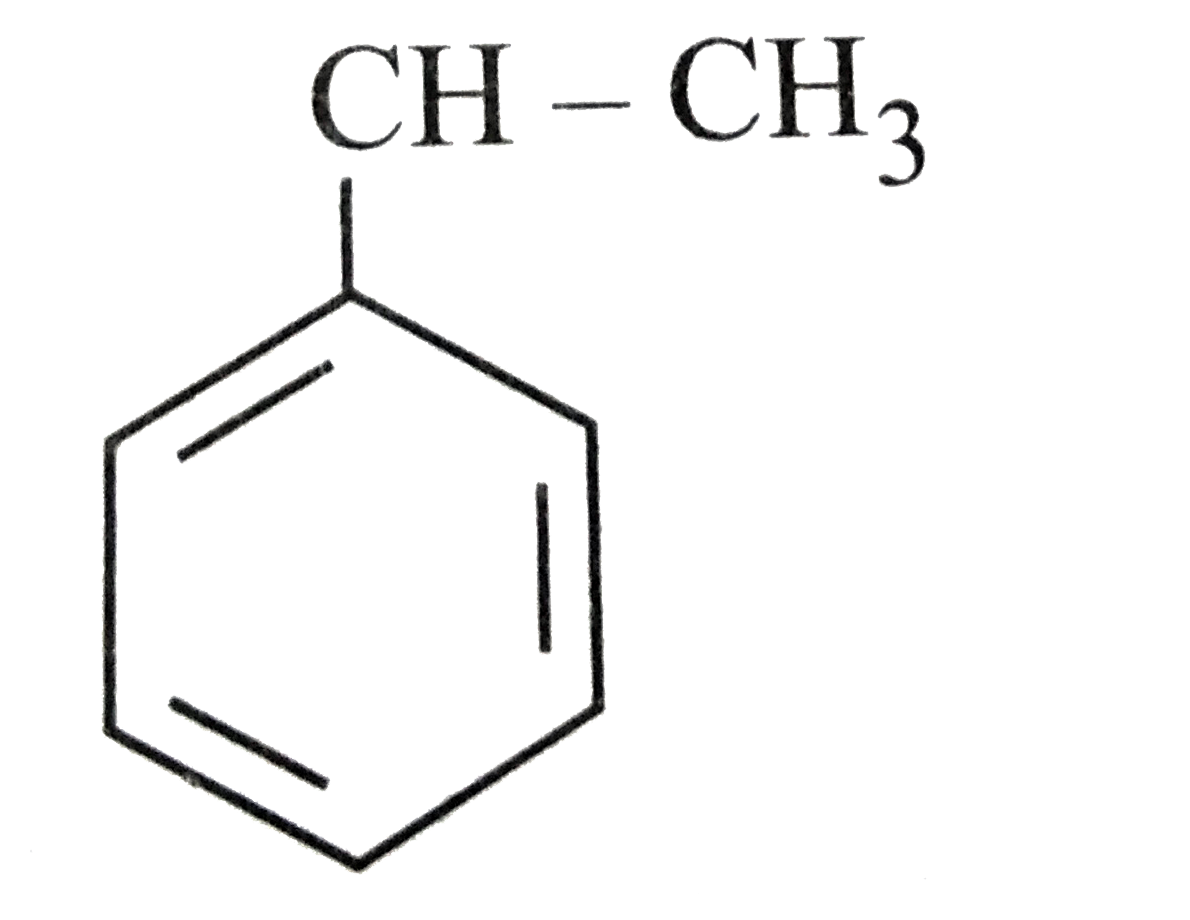 C
C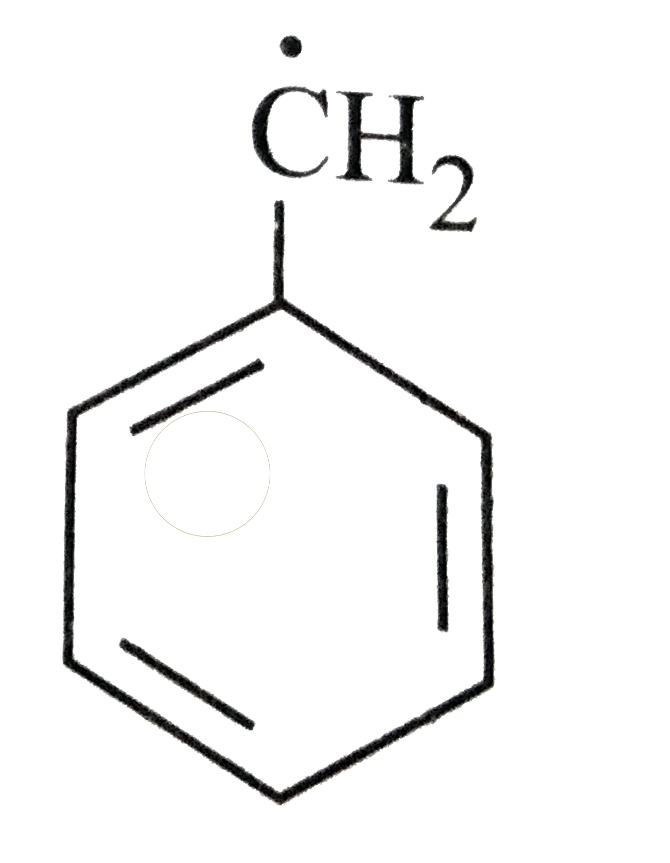 D
D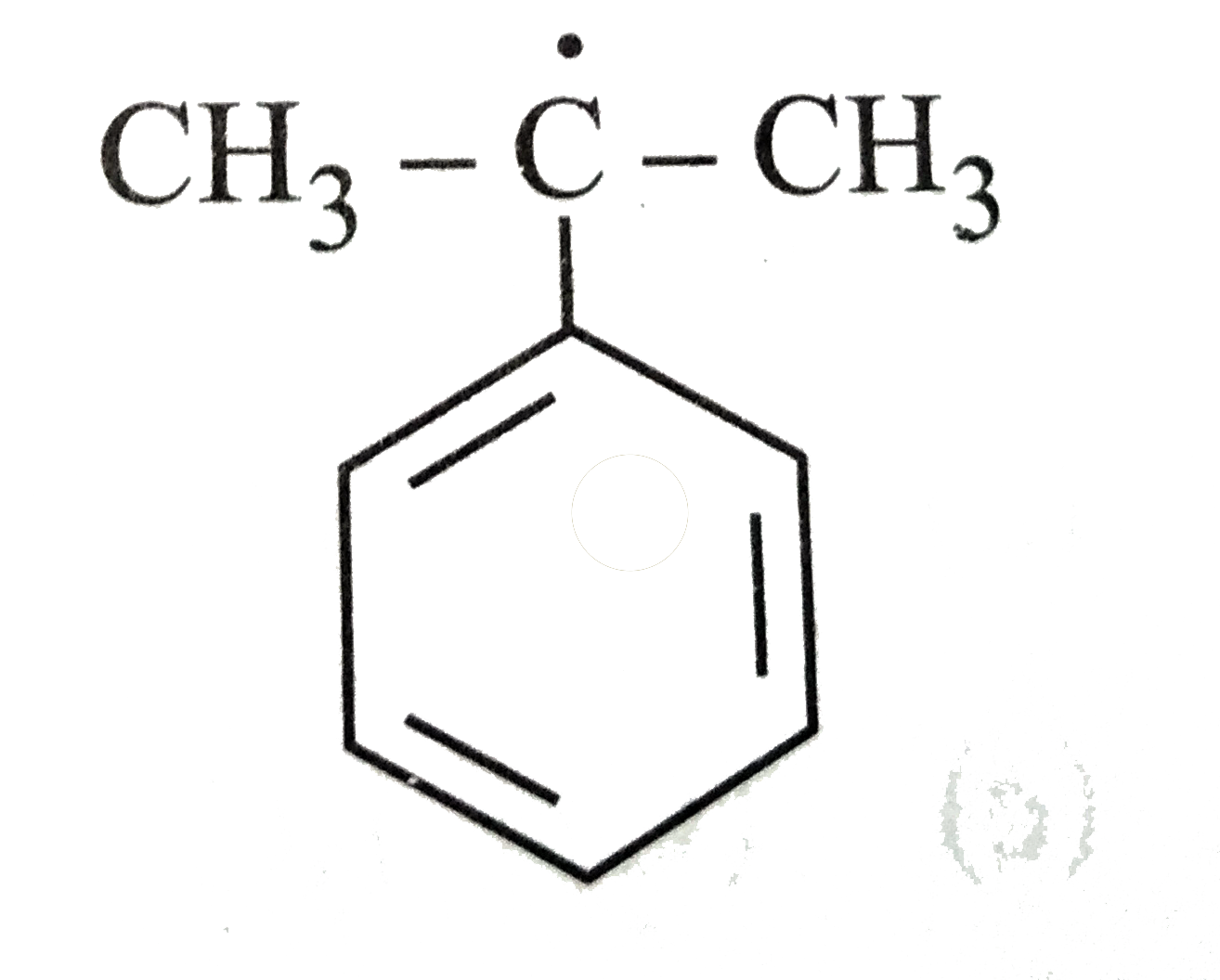
Most stable carbocation among the following is :
A B
B C
C D⊕CH3
D⊕CH3Select the most stable structure among the following :
A B
B C
C D
D
The most stable carbanion among the following is
View SolutionThermally most stable carbonate among the following is
View SolutionMost stable carbocation among the following is
View SolutionLeast stable carbocation among the following is
View SolutionThe most stable among the following is :
View Solution
